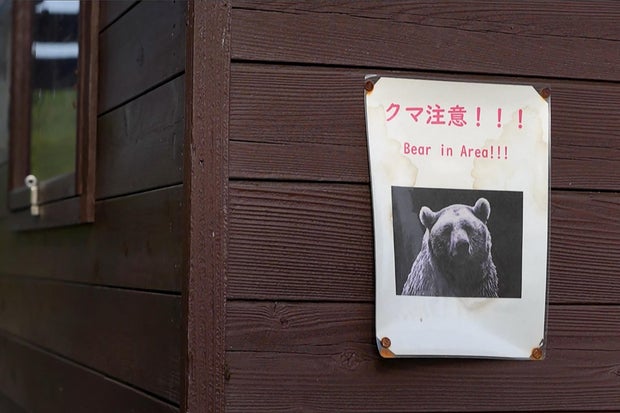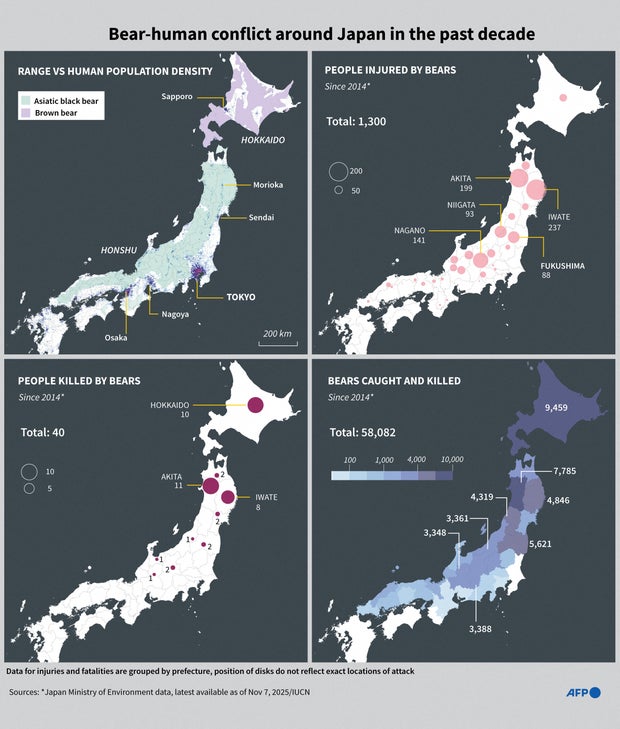The U.S. State Department is warning Americans in Japan to be alert as bear attacks and sightings rise in parts of the country.
Americans should avoid areas where bears are sighted, especially if walking alone, and be aware of their surroundings, the State Department said in a “wildlife alert” Wednesday. Anyone who spots a bear should report it to local authorities.
Bears have killed at least 13 people in Japan since April, more than double the five people killed in the 2023-2024 fiscal year, AFP reported. It’s the largest number of people killed by bears in Japan since the country began keeping such records in 2006. More than 100 other people have sustained injuries since April, according to Environment Ministry statistics from the end of October.
Most of the attacks have occurred in northern Japan. In its alert, the State Department called out the Hokkaido and Akita Prefectures, as well as Sapporo City, where officials closed a park next to the U.S. Consulate General after a bear was sighted there.
Troops were recently deployed to Akita to contain the animals there. Some police have been authorized to shoot the animals, AFP reported.
Caroline Gardin/AFPTV/AFP/Getty Images
U.S. citizens should register for the Smart-Traveler Enrollment Program, which makes it easier to receive security messages from the State Department and allows Americans to be located more easily in case of an emergency, the State Department said.
The State Department regularly issues warnings, and every country in the world has been given a designated travel advisory. Japan’s travel advisory level remains at 1, meaning travelers should “exercise normal precautions.” But it’s rare for U.S. officials to warn about wildlife in a foreign country. The State Department did not immediately respond to a query asking how many such warnings have been issued.
Bears have been spotted near schools, in supermarkets and even near Iwate Hanamaki Airport. Experts say the country’s aging and declining rural population has contributed to the problem. As Japan’s population shrinks, humans leave rural areas and bears move in.
“Then that area recovered to the forest, so bears have a chance to expand their range,” biologist Koji Yamazaki, from Tokyo University of Agriculture, told CBS News‘ Elizabeth Palmer in 2023.
Older local hunters are also not used to bear hunting, and few preventative measures have been taken in recent years. Climate change has also affected the bears’ hibernation schedules and impacted foods the animals depend on.
Japan has two types of bear: Asian black bears found throughout the country’s mainland — also known as moon bears — and the bigger brown bears that live on the main northern island of Hokkaido. Brown bears can weigh over 1,100 pounds and outrun humans. Asian black bears are climbers and are smaller, weighing around 440 pounds at most, according to the International Association for Bear Research and Management. Thousands of the bears are culled in Japan each year.
John Saeki/AFP/Getty Images





